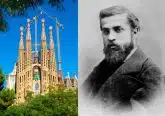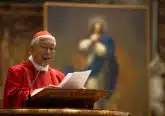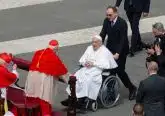Pope Francis: ‘Today the ugliest danger is gender ideology’
Rome Newsroom, Mar 1, 2024 / 10:00 am
Pope Francis on Friday morning gave an address on the importance of building a culture that protects human and Christians vocations, things he suggested were at risk due to contemporary cultural challenges including gender ideology.
“It is very important that there is this meeting, this meeting between men and women, because today the ugliest danger is gender ideology, which cancels out differences,” the pope said during an audience with members of the French-based academic organization Research and Anthropology of Vocations Institute (CRAV).
Gender ideology, which seeks to blur differences between men and women through movements such as transgenderism, “makes everything the same,” Francis said.
“Erasing differences is erasing humanity. Man and woman, however, are in a fruitful ‘tension,’” Francis told the assembly, which is gathered in Rome for a two-day international conference titled “Man, Woman, Image of God: For an Anthropology of Vocations.”
The pope did not read the full address, instead delegating the task to Monsignor Filippo Ciampanelli. “I still have a cold and it’s tiring to read for a while,” the pope said to the participants assembled at the Vatican.

Focusing the Friday morning address on the “anthropological crisis and the necessary promotion of human and Christian vocations,” Pope Francis said this task is challenged by myriad social challenges arising from the cultural zeitgeist, including gender ideology.
Highlighting the anthropological angle of the conference, the pope pointed to “an elementary and fundamental truth, which today we need to rediscover in all its beauty: The life of the human being is a vocation.”
The pope emphasized that this is a foundational element “which underlies every call within the community” and “has to do with an essential characteristic of the human being as such.”
“This discovery,” the pope added, “brings us out of the isolation of a self-referential ego and makes us look at ourselves as an identity in relation.”
The Holy Father emphasized that it is imperative to understand this “anthropological truth,” as it “fully responds to the desire for human fulfillment and happiness that lives in our hearts.”
“We sometimes tend to forget or obscure this reality,” the pope said, which carries the risk of “reducing the human being to his sole material needs or primary needs, as if he were an object without conscience and without will, simply dragged by life as part of a mechanical gear.”
To counteract this trend, the pope stressed that there needs to be a broad recondition that “the life of the human being is a vocation” and that “man and woman are created by God and are the image of the Creator.”
The pope buttressed this remark by highlighting that human beings must cultivate a relationship with “he who generated me, to the reality that transcends me, to others and to the world around me,” as a way to express the universal call we each face “to embrace a specific and personal mission with joy and responsibility.”
The conference includes 15 different sessions and will run from March 1–2. It features a line of speakers including Cardinal Marc Ouellet, who will evaluate the subjects of the conference through a pastoral lens as well through a study of philosophical and theological anthropology.
Participants will attend Mass on Friday and Saturday, celebrated by Cardinal Robert Francis Prevost and Cardinal Víctor Manuel Fernández, respectively.













